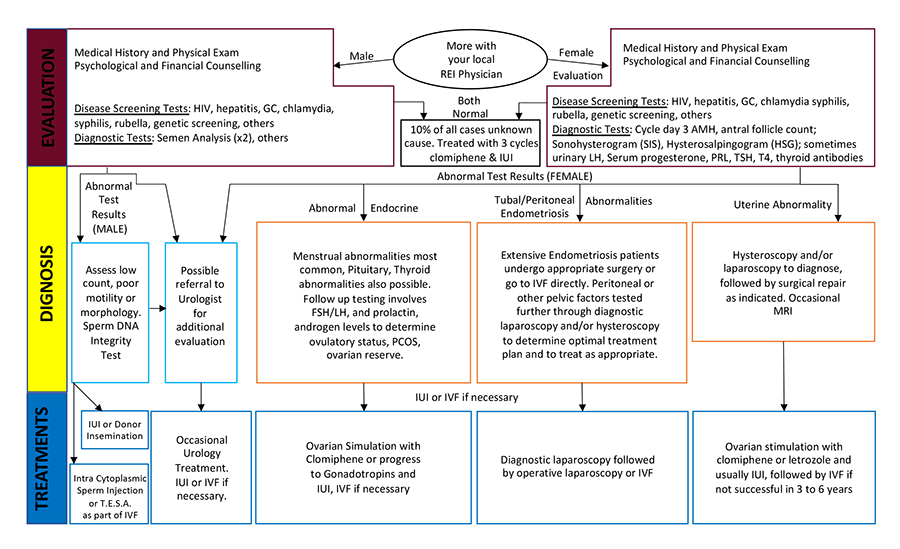All Categories
Featured
Table of Contents
What Is Full Service Reproductive Clinic Near Me New Mexico?
Many people need fertility assistance. This includes men and females with infertility, many LGBTQ people, and single individuals who prefer to raise children. An approximated 10% of women report that they or their partners have ever gotten medical help to become pregnant. Regardless of a requirement for fertility services, fertility care in the U.S.

Usually, fertility services are not covered by public or private insurance companies. Fifteen states require some private insurance providers to cover some fertility treatment, but significant gaps in coverage remain. Only one state Medicaid program covers any fertility treatment, and no Medicaid program covers synthetic insemination or in-vitro fertilization.

This suggests that in the lack of insurance coverage, fertility care runs out grab many individuals. Fewer Black and Hispanic women report ever having actually utilized medical services to become pregnant than White females. This is an outcome of many factors, including lower incomes usually among Black and Hispanic women as well as barriers and misunderstandings that might discourage women from seeking assistance with fertility.
Who Has The Best Infertility Clinics New Mexico?
Transgender people going through gender-affirming care might also not fulfill requirements for "iatrogenic infertility" that would qualify them for covered fertility conservation. Lots of individuals need fertility assistance to have children. This might either be because of a diagnosis of infertility, or because they remain in a same-sex relationship or single and desire children.

Fertility treatments are costly and typically are not covered by insurance coverage. While some private insurance coverage plans cover diagnostic services, there is extremely little coverage for treatment services such as IUI and IVF, which are more costly. Many people who utilize fertility services should pay of pocket, with costs frequently reaching countless dollars.
About 25% of the time, infertility is brought on by more than one factor, and in about 10% of cases infertility is unexplained. Infertility estimates, nevertheless do not account for LGBTQ or single individuals who may likewise require fertility assistance for family structure. For that reason, there are diverse factors that may prompt individuals to look for fertility care. residential dumpster rental.
Who Has The Best Fertility Center New Mexico Service?
Client Info Series. 2017 Our analysis of the 2015-2017 National Study of Family Growth (NSFG) finds that 10% of ladies ages 18-49 say they or their partner have actually ever talked with a physician about methods to help them end up being pregnant (information not shown).3 Among females ages 18-49, the most commonly reported service is fertility advice ().
Many clients lack access to fertility services, mainly due to its high cost and restricted coverage by personal insurance and Medicaid. As an outcome, many individuals who utilize fertility services should pay of pocket, even if they are otherwise insured. Expense costs differ widely depending on the patient, state of residence, supplier and insurance coverage plan (Dumpsters Plymouth MA).
Figure 3: Fertility Treatments Usually Cost Patients Thousands of Dollars Insurance protection of fertility services differs by the state in which the individual lives and, for people with employer-sponsored insurance coverage, the size of their employer. Many fertility treatments are ruled out "medically essential" by insurer, so they are not typically covered by personal insurance plans or Medicaid programs.
What Do I Need To Know To Hire A Conception Clinic New Mexico?
g., screening) are most likely to be covered than others (e. g., IVF). A handful of states need coverage of fertility services for some fully-insured personal strategies, which are controlled by the state. These requirements, nevertheless, do not apply to health plans that are administered and funded directly by companies (self-funded plans) which cover six in ten (61%) workers with employer-sponsored health insurance coverage.
2 states (CA and TX7) require group health plans to offer at least one policy with infertility coverage (a "required to provide"), but companies are not required to choose these plans. Figure 4: Most States Do Not Need Personal Insurers to Offer Infertility Benefits However, in states with "required to cover" laws, these just use to particular insurance companies, for specific treatment services and for specific patients, and in some states have monetary caps on expenses they must cover ().
In other states, almost all insurers and HMOs are included in the required (Dumpster Plymouth MA). Numerous states offer exemptions for small employers (
Latest Posts
Who Has The Best Fertility Center Albuquerque Nm?
Who Has The Best Fertility Site New Mexico?
How Do I Choose A Fertility Reproductive Center Albuquerque Nm Service?